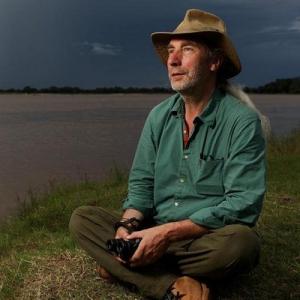Watch Simon Barnes, 2021’s Guest Judge, announce the winners of 2021’s Keats-Shelley and Young Romantics Prizes.
Young Romantics Prize 2021
Prize Winners
Poetry First Prize Winner
Eustacia Feng, A Craftsman’s Tale
Poetry Second Prize Winner
Shay Fallon, Born under Scorpio
Sung Cho, Reverberations
Judge's Comments
The Young Romantic poets rose to the challenge of ‘Writ in Water’ in a variety of ways, some with very unexpected interpretations, and many with an admirable use of imagination. Many poems showed great touches and a keen eye (or ear) for detail, but the ones that stood out were those that seemed most complete, fresh and contemporary. These poems tended to be free verse and addressed the theme in a slightly oblique way. ‘Writ in Water’ was a starting point that allowed their thoughts and feelings wander. The poem itself sought to instil that sense of wonder in the reader.
We chose the three shortlisted poems for the following reasons.
‘A Craftsman’s Tale’ by Eustacia Feng. An effective and imaginative poem with rich imagery and variety by an accomplished story-teller with a keen eye for detail and an ability to thread a neat narrative between an engaging opening and a confident ending. Will Kemp.
‘Born under Scorpio’ by Shay Fallon. Sophisticated language and short units of sense combine to provide an authoritative tone to this aptly sparse yet intriguing piece by a poet not afraid to get in touch with their imagination and take on the whole universe. Will Kemp
‘Reverberations’ by Sung Cho. This beautifully pitched and affecting fourteen line poem explores the sonnet form with great maturity and confidence, using sophisticated line breaks and complex rhythms. Tightly written, intelligent, and with powerfully varied vocabulary. Deryn Rees-Jones.
Deryn Rees-Jones and Will Kemp
Highly Commended: Poetry
‘A Diamond in the Rough’ by Sofia Mirzoeva
‘Away’ by Hugo Jeudy
Essay Prize Winner
Finn Smyth, ‘Touchstones of the Heart’: The Progress of Keats’s Suffering
Essay Second Prize Winner
Clemmie Read, A Bower Quiet: can the Romantics defy adversity?
Katie Saunders, Finding solace in the sublime: Romantic poetry in the face of adversity
Judge's Comments
The Young Romantics essays gave us an insight into the way life has been for our young people in this most extraordinary year. Many of them spoke of finding solace in the poetry of Keats and Shelley and commented on how prescient and topical their poetry continued to be. The essays were impressive: a reminder that the next generation will build upon and improve on the mistakes of the past. Many of them spoke of the effects of climate change and the pandemic with the reading of poetry providing a much-needed reflection on our times.
Professors Sharon Ruston and Simon Bainbridge
Highly Commended: Essays
‘The Adversity of Dying: The Romantic Imagination of Graves, Epitaphs and Resting Places’ by Sasha Willoughby
‘“Sorrow is Wisdom”: Keats, Poetry and Adversity’ by Austin Spendlowe
‘In sickness not ignoble’ by Priya Abularach
Shortlists
The winners and runners-up of 2021’s Young Romantics Prizes will be announced online on 16th September at 7pm GMT. You can watch the announcement here, or via our Twitter, Facebook and Youtube pages.
The virtual prize-giving will be hosted by 2021’s Prize Chair Simon Barnes – the acclaimed sports journalist, nature-writer and author of books about everything from Hong Kong to The Meaning of Birds.
- Read all the shortlisted poems and essays below.
- Read the Keats-Shelley Prize Poetry and Essay Shortlists here.
We would like to send extra special thanks to our amazing Judging Panel – Professors Sharon Ruston and Simon Bainbridge for the essays, Professor Deryn Rees-Jones and Will Kemp for the poems. They always deserve huge credit for their expertise and hard work, but never more so than in this year of all years. You can read their thoughts below.
We also want to thank and congratulate everyone who entered 2021’s Prize. Inspired by the bicentenary of John Keats’ death, the question posed to our Young Romantics essayists was how poetry can help us confront, understand and if possible overcome adversity. Reading your work, whether poems or prose, gave us enormous pleasure and considerable hope during these dark times. We hope that the challenge of writing them did something similar.
The theme of 2021’s Poetry Prizes is ‘Writ in Water’. Our inspiration is John Keats’ gravestone in Rome, whose epitaph reads: ‘Here lies one whose name was writ in water.’ The 2021 Young Romantics Prize is part of our wider KS200 programme, commemorating the bicentenary of John Keats’ death, aged just 25, on 23rd February 1821.
The Young Romantic essayists were asked to address this question: ‘How can poetry – especially the poetry of John Keats and Percy Shelley – help us cope with adversity?‘
- Listen to Simon Barnes talk to the Keats-Shelley Podcast about nightingales and skylarks - both real and poetic.
- Turner Prize-winning artist Mark Wallinger talks to the Keats-Shelley Podcast about his life, career and how his love of John Keats inspired his monumental art installation ‘Writ in Water’, which commemorated the 800th anniversary of the Magna Carta.
- Follow John Keats on his Final Voyage from England to Italy in 1820 in our updated, interactive Google Earth Map (the Director’s Cut).
Any questions regarding the 2021 Prize: prizes@keats-shelley.org
Poetry Shortlist
Essay Shortlist
Longlists
Poetry Longlist
Essay Longlist
Judges
-
Chair of Judges

Simon Barnes
Simon Barnes is an award-winning journalist, writer and novelist. In a 32-year career at The Times, he wrote mainly about sports, covering seven Olympics, five World Cups, a Superbowl and the World Chess Championship. His profiles included everyone from David Beckham to Red Rum, his publications range from novels about Hong Kong to a biography about England off-spinner Phil Edmunds. It was Simon’s talent for elegantly encapsulating the drama simmering underneath the action and within the players that won him readers, admiration and awards: ‘With Sampras the beauty was subtle, the tactics and execution obvious. With Federer, it was exactly the other way around,’ as he wrote in his 2018 career-spanning retrospective, Epic.
In addition to becoming The Times’ Chief sportswriter in 2002, Simon wrote columns about wildlife and birdwatching. These ushered in his second act as a writer of the natural world. Notable titles include Flying in the Face of Nature (1990), the bestselling How to be a Bad Birdwatcher (2004), and has continued with 2016’s The Meaning of Birds, Rewild Yourself (2018) and most recently On the Marsh: A Year Surrounded by Wildness and Wet. Simon was born in Bristol and grew up in London, returning to his birthplace to read English at Bristol University. In 2007, the university awarded him an honorary doctorate.
Listen to Simon consider what nightingales meant to John Keats and John Clare at the Keats-Shelley Podcast
Simon’s website is here.
Follow him on Twitter.
-
Poetry Judges

Professor Deryn Rees-Jones
Professor Deryn Rees-Jones was born in Liverpool with family links to North Wales, where she later studied English at the University of Bangor, before completing a literature PhD at Birkbeck College, University of London. She is Professor of Poetry at the University of Liverpool.
- Read Deryn’s poem ‘Nightingale’ - a Guardian ‘Poem of the Month - which she contributed to our own ‘Odes for John Keats’ volume.
She won an Eric Gregory award in 1993 and ‘The Memory Tray’ (Seren, 1995) was shortlisted for the Forward Prize for Best First Collection. Her other works are ‘Signs Round a Dead Body’ (Seren, 1998), ‘Quiver’ (Seren, 2004), and a groundbreaking critical study of twentieth-century women’s poetry, ‘Consorting with Angels’ (Bloodaxe, 2005), which was published alongside her accompanying anthology ‘Modern Women Poets’ (Bloodaxe, 2005). Deryn’s selected poems, ‘What It’s Like to Be Alive’, was published in 2016 and is a Poetry Book Society Special Commendation.
In 2004 Deryn was named as one of Mslexia’s ‘top ten’ women poets of the decade, as well as being chosen as one of the Poetry Book Society’s Next Generation poets.
Deryn has considerable experience as a poetry judge, including the National Poetry Competition, the T.S. Eliot Prize, the Costa Prize (Poetry) and every two years chair the judging panel for the English Association’s Michael Murphy Poetry Prize for a best first collection of poetry.
Deryn’s most recent book is Paula Rego: The Art of Story, the first full-length survey of one of the most distinctive and important modern artists.
Visit Deryn’s website here.
Her profile page at the University of Liverpool is here.
-

Will Kemp
Will Kemp has won the Keats-Shelley Prize (2016), the Cinnamon Pamphlet Competition (2014), the Debut Collection Award (2010), the Envoi International (2010) and the Cinnamon Short Story Award (2015). He has also been runner-up in the Keats-Shelley Prize (2013) and the Poetry Society’s Stanza Competition (2011), and highly commended in other competitions, including the Bridport and the Plough. Will regards a commendation in the Keats-Shelley Prize 2006 as the turning point in his writing career since it spurred him on during a time of self-doubt.
Cinnamon Press has published his collections to date, Nocturnes (2011), Lowland (2013) and The Painters Who Studied Clouds (2016), as well as his award-winning pamphlet, The Missing Girl (2015). His poems have been published in various journals, including: Ambit, Envoi, The Guardian, The Interpreter’s House, Iota, Magma, The North, Obsessed with Pipework, Orbis, Other Poetry, Poetry News, Poetry Scotland, The Rialto, The Times and Smith’s Knoll.
-
Essay Judges

Professor Sharon Ruston
Professor Sharon Ruston is a long-standing Judge of the Prize essays. She is Professor of English Literature at the University of Lancaster, having previously taught at Bangor, Keele and Salford.
Her research specialism concerns the relations between the literature, science and medicine of the Romantic period, 1780-1820. Her first book, Shelley and Vitality (Palgrave Macmillan, 2005), explored the medical and scientific contexts which inform Shelley’s concept of vitality in his major poetry. Since then, she has worked on Mary Wollstonecraft’s interest in natural history, William Godwin’s interest in mesmerism, and Humphry Davy’s writings on the sublime. These form chapters of her most recent book, Creating Romanticism: Case Studies in the Literature, Science, and Medicine of the 1790s (Palgrave Macmillan, 2013).
In 2020, Sharon published (with Tim Fulford) the four volume Collected Letters of Sir Humphry Davy and his Circle with Oxford University Press. Read a Q&A with Sharon and Professor Fulford at the BARS Blog.
Visit Sharon’s profile page at the University of Lancaster here.
-

Professor Simon Bainbridge
Professor Simon Bainbridge is a long-standing Judge of the Prize essays. He teaches and writes at the University of Lancaster.
His main research interest is in the relationship between the writing of the Romantic period and its historical context. He is the author of Napoleon and English Romanticism (Cambridge University Press, 1995) and British Poetry and the Revolutionary and Napoleonic Wars (Oxford University Press, 2003) and the editor of Romanticism: A Sourcebook. He has published in journals such as Romanticism, Romanticism on the Net and The Byron Journal and has written essays and entries for An Oxford Companion to The Romantic Age: British Culture 1776-1832, Romanticism: An Oxford Guide, The Blackwell Companion to European Romanticism, and The Oxford Handbook to English Literature and Theology. Among other current projects he is working on the literature and culture of mountaineering in the Romantic period.
Visit Simon’s profile page at the University of Lancaster here.